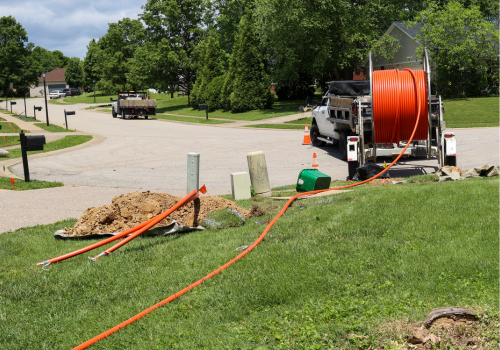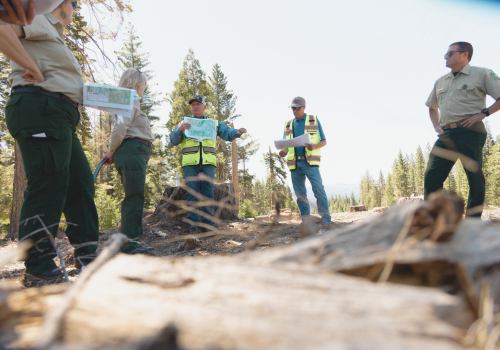Underground utility workers are in high demand, from water, sewer, and oil pipeline workers to those that install and repair below-ground powerlines.
Besides suffering from a general labor shortage that the construction industry as a whole is having, the underground utility sector is experiencing shortages in its skilled labor.
“Skilled labor is a difficult industry to recruit for, because there are so many people and so many jobs, and each company is competing against one another for the same small pool of qualified candidates,” says Alison Passino, Senior Recruiter for Grand River Aseptic Manufacturing.
Understand your target candidate
“What I found worked well is to be where these people are. These kinds of people aren’t usually on LinkedIn, so we had success hosting job fairs and inviting people to join our Facebook groups. We also started attending technology trade shows for blue-collared workers so we can generate conversations and be in the same space as the people we want to recruit.
Highlight your value to the candidate
Passino says employees have been able to make a lot of gains during the pandemic, so they often get to call the shots.
“We talk about in terms of WIIFM—what’s in it for me? That’s the point of view employees are taking when approaching job searches. Employers need to put that value proposition front and center when recruiting,” says Passino.
Do not overlook social media
What most do not realize is that potential employees who are interested in possibly working for you are examining your company even when you’re not hiring. A number of your followers on social media are people who consider your company as a potential employer.
For this, create posts that show your company’s culture. Posts that show happy employees, employees being recognized for their accomplishments, and company successes will draw in more potential quality candidates.
“Social media is increasingly becoming a handy recruiting tool,” says Passino. “It’s no secret that social media has become a big part of consumers’ routine lifestyle. If you want to reach people where they are and show potential recruits your company’s value, social media is where you need to be. It’s about meeting them where they’re at—not necessarily where you’re at.”
“And once you have their attention,” continues Passino, “show them a company culture that people can see themselves staying at and growing themselves into—maybe being mentored or continuing their education. People don’t want to do the same job year after year until they retire. Everyone wants to grow in title and in money.”
Ditch traditional applications
Another unique challenge to hiring within the utility sector is that many candidates don’t have proper resumes. When it comes to these candidates, they may be highly experienced but, on paper, they appear as someone you wouldn’t want to hire.
“Creating a solid resume is a lot of work for an applicant, and traditionally hiring managers place a lot of value on resumes to see if an applicant is a fit for the position.”
One way to make your hiring process more candidate-friendly is to not put so much value on the written resume an applicant submits, but rather base it on their actual experience, qualifications, and potential fit for the role.
Getting to know an initial candidate does not have to be through a piece of paper.
Show opportunities for growth
A lot of companies don’t have a training strategy linked to their recruitment strategy. Meaning they hire someone who possesses the necessary skill level for most of their tasks, but they don’t create a path to get the employee where they want them to be.
When it comes to new employees, training is crucial in making them feel confident and secure in their new roles and responsibilities. Apprenticeships have become a popular way of highlighting company value in recruiting, as it shows the candidate that they will get first-hand training from an experienced person upon starting.
Apprentices often have an affinity for the company who trained them and aim to work in that company after the apprenticeship is complete. They also tend to perform better; they show greater productivity, make fewer mistakes, and follow safety and other company guidelines.
“Offering different kinds of apprenticeships for positions that require more skills offers people a big opportunity to try something a little new and a little different, as well as getting on-the-job training,” says Passino.
Consider a third-party
Using a trusted partner, such as a third-party recruiter, can help you achieve your recruitment goals. They tend to have a large database of potential candidates and take a more direct approach to recruiting.
“Also, if you’re looking for someone with a very specific skill set— often in the utility sector - those are great avenues to explore with a third-party recruiter,” says Passino.
Invest in your current workforce
Also, one of the best ways of avoiding recruitment headaches is to invest in an employee retainment strategy. Companies that retain people are more attractive to new candidates.
For an existing employee to be happy and want to stay with your company, employees should feel secure and satisfied with where their career is going, especially when it comes to advancement.
“People want to work somewhere they genuinely enjoy,” says Passino. “Paying a fair and equitable wage, offering a competitive benefits package, encouraging opportunities for advancement, and having a recognition program that celebrates great work are key drivers of retaining good workers.”
This is always important but is especially now considering the high demand for skilled workers in the underground utility sector.
Subscribe to The Utility Expo monthly newsletter to receive more industry insights like this.












